The Latest Headlines at Defense World
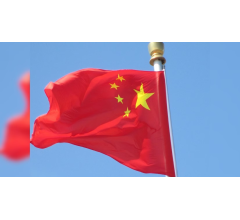

Hidden Agendas: Billions Added to Pentagon Budget Without Explanation
Key Points: Over $21 billion has been added to the Pentagon’s budget through over 1,000 individual program increases inserted by lawmakers. These programs lack transparency, raising concerns about potential conflicts... More of this article »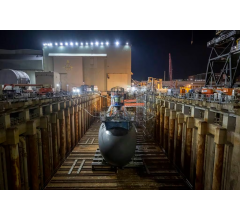
Navy Wants One Submarine, Lawmakers Push for Two
Key Points: The US Navy has requested funding for one Virginia-class submarine in fiscal 2025, while lawmakers are pushing for two. Lawmakers argue that reduced submarine orders will harm healthy vendors within the submarine-industrial... More of this article »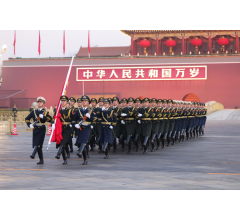
First Defense Talks in 18 Months: US, China Seek to Manage Competition
Key Points: U.S. Defense Secretary Lloyd Austin and Chinese Defense Minister Adm. Dong Jun spoke for the first time in 18 months, marking a thaw in military communications. The talks centered on managing tensions, emphasizing... More of this article »
Netherlands Allocates Significant Military Aid for Ukraine
Key Points: The Netherlands firmly supports Ukraine’s defense, committing €4 billion in military aid over 2024-2026 and increasing its defense budget. The Netherlands prioritizes replenishing air defense and ammunition... More of this article »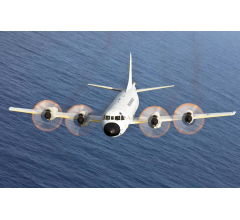
Brazil Seeks Modern Maritime Patrol Fleet
Brazil’s Air Force (FAB) is taking significant steps to modernize its maritime patrol capabilities, a mission vital to protecting its vast coastline and offshore resources. The FAB is collaborating with the nation’s flagship... More of this article »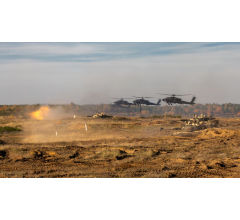
Record-High Military Sales for the United States
Key Points Russia’s assault on Ukraine has spurred a significant arms procurement surge worldwide, with the United States benefiting from increased sales and a strengthening of defense partnerships. European nations,... More of this article »
Microchips and Missiles: Russian Defense Contractor Violates Sanctions
The global effort to isolate Russia economically continues to face determined opposition within Russia itself. In a striking case of sanctions evasion, a prominent Russian microchip manufacturer has been caught red-handed supplying... More of this article »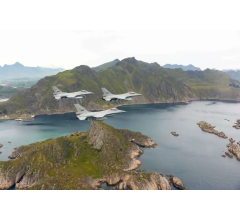
Norway to Sharply Increase Defense Spending
In a move signaling a significant shift in national priorities, Norway’s government has announced a historic increase in defense spending. This surge in investment aims to modernize the nation’s armed forces and bolster its... More of this article »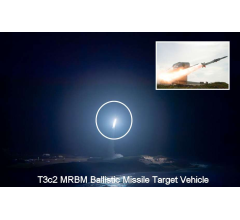
Northrop Grumman Launch Boosts Missile Defense Testing
Northrop Grumman Corporation’s successful launch of a Medium-Range Ballistic Missile Type 3 Configuration 2 (MRBM T3c2) Target Vehicle marks a significant milestone in US missile defense development. Conducted in collaboration... More of this article »
South Korea Propels Military AI Development
South Korea has taken a decisive step towards securing a technological advantage in the evolving defense landscape by establishing a dedicated Defense AI Center. This strategic initiative reflects the growing recognition of artificial... More of this article »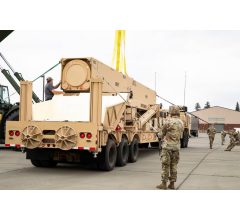
Hypersonic Acceleration: Navy Test a Critical Step in Joint Weapons Development
The race for hypersonic weapons, which are systems capable of traveling at speeds exceeding Mach 5 while maintaining maneuverability, has intensified recently. Global powers like China and Russia have made significant strides in this... More of this article »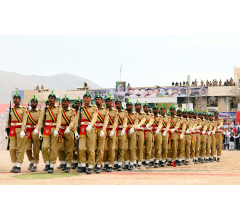
Pakistan Showcases Domestic Defense Programs at Pakistan Day Parade
On March 23rd, 2024, Pakistan commemorated its national holiday, Pakistan Day, with a grand military parade in the capital city, Islamabad. This annual event celebrates national pride and provides a platform for the country’s... More of this article »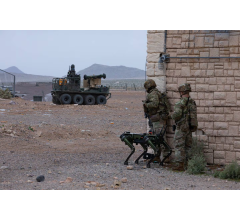
US Army Integrates Humans and Machines on the Battlefield
Key Points: The U.S. Army is actively developing integrated combat formations where both robotic systems and human soldiers operate as a coordinated force. The primary goal is to reduce risks to soldiers and increase battlefield... More of this article »
